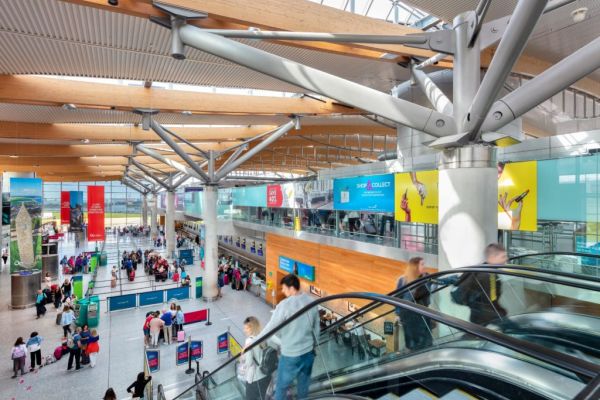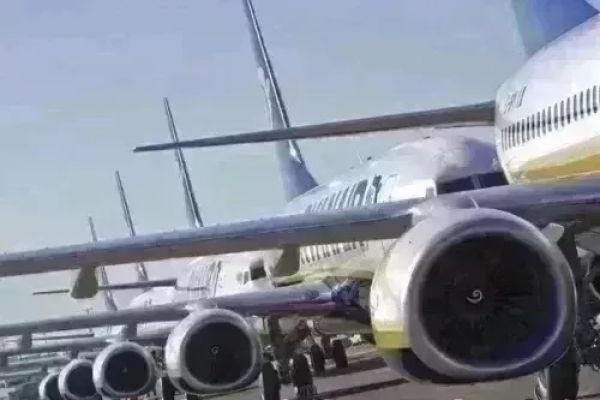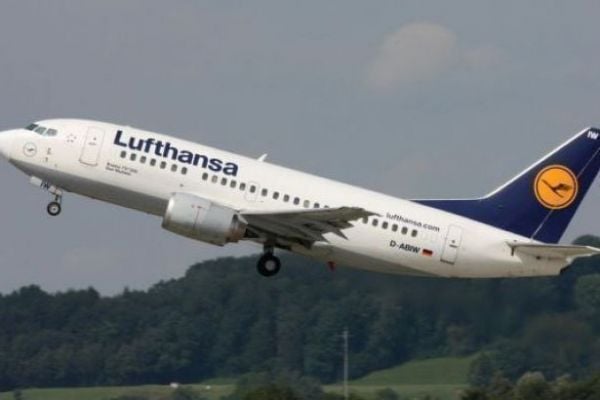Strikes and staff shortages are forcing airlines to cancel thousands of flights and causing hours-long queues at major airports, dashing hopes for a sizzling first summer following widespread COVID-linked lockdowns.
Here is a summary of some of the key developments:
LABOUR UNREST
After sweeping job cuts and pay cuts when COVID-19 brought travel to a grinding halt, staff across the industry from pilots to baggage handlers are asking for big pay increases and better working conditions.
Norwegian Air in June agreed a 3.7% pay rise for pilots among other benefits, in a sign of what other airlines may have to offer to avoid labour strife.
SAS and Ryanair in July agreed terms with some unions representing their pilots, while British Airways and KLM signed wage deals with ground staffers, as strikes affected hundreds of thousands of travellers in the key holiday period.
** Portuguese airports
Portugal's civil aviation workers on Aug. 1 threatened to go on strike on 10-21 August. Two unions representing workers accused airport operator ANA, which manages 10 airports in Portugal, and French group Vinci, which controls ANA, of making multi-million euro net profits but not paying decent wages to workers.
** Lufthansa
Pilots at the German flagship carrier voted on 31 July in favour of industrial action. Pilots union VC's board member said the vote did not necessarily mean a strike would happen and that they were ready to negotiate.
VC is demanding a 5.5% pay rise this year for its pilots and automatic inflation compensation thereafter. Lufthansa CEO said on 4 August the airline had set dates to negotiate with pilots in the following week.
The airline on 4 August reached a deal with its ground staff, after a strike on 27 July forced it to cancel more than 1,000 flights. The agreement includes a pay hike of 200 euros a month from July 1 this year, plus an increase by 2.5% or at least €125 a month from 1 January next year and another 2.5% from 1 July, 2023.
** Ryanair
Ryanair's Spanish cabin crew union members plan to strike four days a week until January to press demands for higher pay and better working conditions, the USO union said on 27 July. The strike action, also backed by Sitclpa, will take place from Monday to Thursday every week from 8 August to 7 January.
Ryanair workers also caused disruption at many Spanish airports during July, when they walked out for several days, mainly on weekends.
** EasyJet
Spain-based pilots at easyJet said on 29 July they would strike for nine days in August. The pilots will strike from the bases in Barcelona, Malaga and Palma in Mallorca.
Meanwhile, Spain-based cabin crew suspended their strike planned for 29-31 July after it reached a deal with the company. The workers went into strike previously in July, first on 1-3 July 1-3 and again on 15-17 July, which caused some flight cancellations and delays for the budget airline.
REDUCED SUMMER SCHEDULES
Airlines, including Lufthansa, British Airways, easyJet, KLM and Wizz Air, have cut thousands of flights from their summer schedules to cope with the disruptions, while major airports including London's Heathrow and Amsterdam's Schiphol capped passenger traffic. However, on 7 August, a Lufthansa board member told German media Funke media group that the worst was over for the German airline when it came to flight chaos.
British Airways halted ticket sales on short-haul flights departing from Heathrow until mid-August, following the airport's decision to cap capacity. The airline's website showed no tickets for flights before 16 August to popular European destinations, including Paris, Milan and Amsterdam.
On 2 August, Schiphol extended the passenger cap it had introduced earlier to cope with long waiting times and other logistical problems into September and October.
HIRING SPREE AND INCENTIVES
Airports and airlines are scrambling to hire more workers from pilots to security and border control staff and baggage handlers after many left during the COVID-19 crisis.
Industry executives say it is hard to recruit for often physically demanding, relatively low paid work at airports often located out of town. Training new hires and getting them security clearance to work at airports also takes months.
** Schiphol agreed to pay 15,000 cleaners, baggage handlers and security staff €5.25 extra per hour during the summer.
One of Europe's busiest airports needs to hire 500 security staff. It currently has 58,000 workers at and around the airport, 10,000 fewer than before the pandemic.
** Charles de Gaulle and Orly airports in Paris need to fill 4,000 jobs mainly in security, maintenance and travel retail, according to airport operator Groupe ADP and the CDG Alliance.
More than 20,000 people were laid off at Charles de Gaulle during the pandemic, according to the CGT union.
Airport security company ICTS, which operates at Charles de Gaulle, is offering a one-off 180-euro bonus to those delaying their vacation until after 15 September and €150 for staff who sign up new recruits, according to a CGT union representative.
** Frankfurt Airport, Germany's busiest hub, has rehired nearly 1,000 ground services employees after cutting about 4,000 during the pandemic, but will continue to see disruptions due to lack of workers in the next two or three months, its operator Fraport has said.
Germany plans to fast-track work permits and visas for several thousand foreign airport workers, mainly from Turkey, to help to ease the travel chaos.
According to the ADV airport association, about one in five jobs in security, check-in and aircraft handling is unfilled at German airports.
News by Reuters, edited by Hospitality Ireland. Click subscribe to sign up for the Hospitality Ireland print edition.








